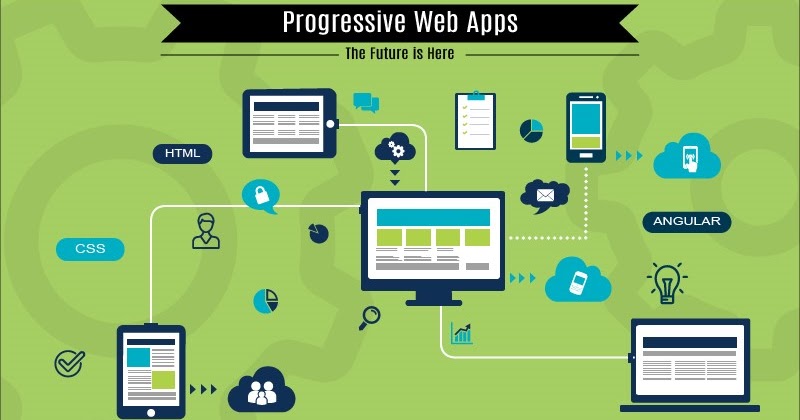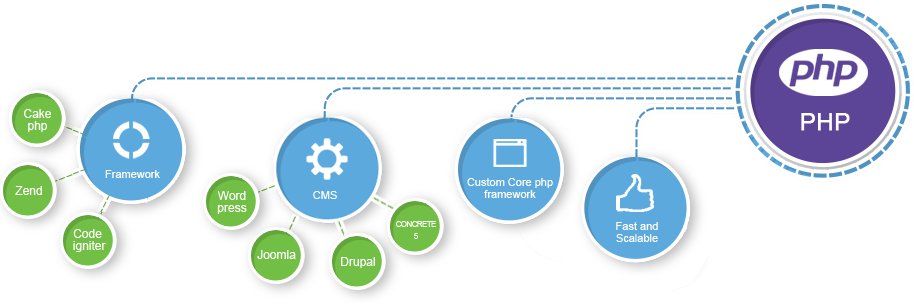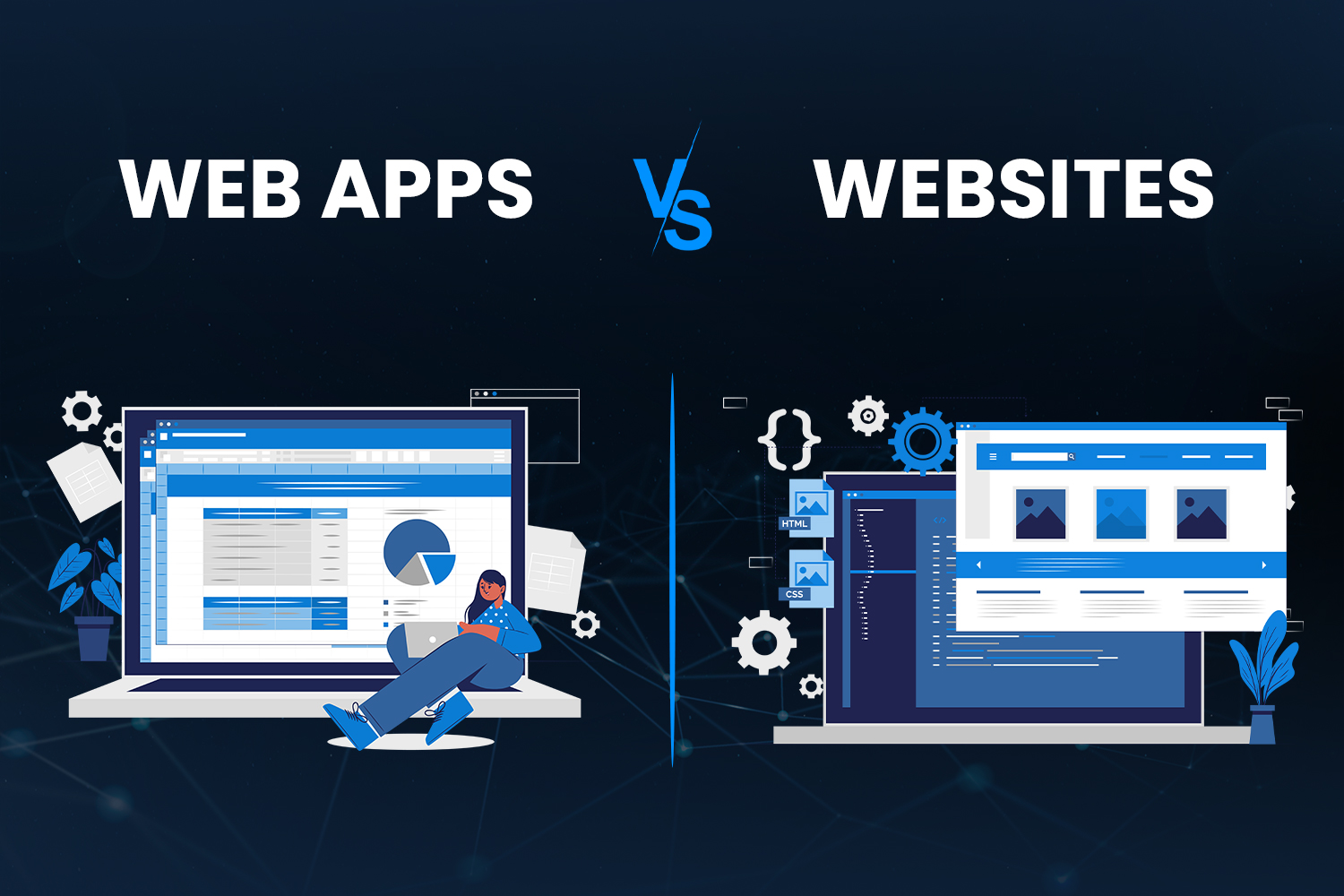In today’s digital age, having a strong online presence is crucial for businesses of all sizes. However, understanding the distinction between web apps and websites is essential when it comes to developing an effective online strategy. While both web apps and websites serve as valuable tools for engaging with users and providing information, they have distinct differences that can greatly impact the success of your online endeavors. In this article, we’ll explore the dissimilarities between web apps and websites, delve into their advantages and use cases, and help you determine which option is best suited for your business needs.
Key Differences between Web Apps and Websites
-
Functionality and Interactivity
One of the primary distinctions between web apps and websites lies in their functionality and interactivity. Websites typically focus on providing information and are designed to be accessed via a web browser. They are predominantly static and allow users to browse through various pages to consume content. On the other hand, web apps are more dynamic and interactive, often providing advanced functionality that goes beyond simply displaying information. Web apps allow users to perform specific tasks, such as making online transactions, submitting forms, or accessing personalized content.
-
User Experience and Design
Another critical factor to consider when differentiating between web apps and websites is the user experience (UX) and design. Web apps place a strong emphasis on delivering an immersive and tailored experience to users. They incorporate intuitive interfaces, responsive design elements, and personalized features to enhance user engagement. Websites, on the other hand, prioritize providing information in a user-friendly manner, focusing on clear navigation, visually appealing layouts, and easily accessible content.
-
Data Storage and Processing
Web apps and websites also differ in terms of data storage and processing capabilities. Web apps often require a backend infrastructure to store and process data, allowing for complex operations and real-time interactions. They can save user preferences, track activity, and perform calculations or data manipulations. In contrast, websites primarily serve as a means of presenting static information and typically don’t require extensive data storage or processing capabilities.
-
Complexity and Development Process
The complexity of development is another key aspect that sets web apps apart from websites. Web apps are typically more intricate to build and maintain due to their advanced functionality and interactivity. They require the integration of databases, APIs, and other technologies to deliver a seamless user experience. Conversely, websites tend to be simpler in terms of development, as they focus on content delivery rather than complex functionality.
Web Apps: The Advantages and Use Cases
Web apps offer numerous advantages and are particularly suited for specific use cases. Here are some of the key benefits of web apps:

-
Enhanced User Experience
Web apps excel in delivering an enhanced user experience through personalized interactions. By collecting user data and preferences, web apps can tailor content and functionality to individual users, resulting in a more engaging and relevant experience. This level of personalization fosters customer loyalty and encourages repeat visits.
-
Personalization and Customization
Web apps allow businesses to provide personalized experiences to their users. Through features like user accounts and profiles, web apps can offer customized content, recommendations, and settings. This level of personalization helps businesses build stronger relationships with their audience, leading to increased customer satisfaction and retention.
-
Advanced Functionality and Interactivity
Unlike websites, web apps can provide advanced functionality and interactivity. They can incorporate features such as real-time updates, interactive forms, multimedia content, and collaborative tools. These capabilities enable businesses to offer innovative solutions, streamline processes, and create immersive experiences that captivate users.
Examples of Web Apps
-
- Web apps can be found in various industries and sectors. Some notable examples include:
- E-commerce platforms with personalized product recommendations and shopping carts.
- Social media networks allow users to connect, share content, and interact in real-time.
- Project management tools with task assignments, progress tracking, and team collaboration features.
- Online banking applications enable users to manage their accounts, transfer funds, and access financial services.
Websites: The Advantages and Use Cases
While web apps provide advanced functionality and interactivity, websites also offer unique advantages and serve specific purposes. Consider the following benefits of websites:

-
Information Dissemination
Websites are primarily designed to provide information to users. They act as digital brochures or catalogs, offering details about products, services, company background, and contact information. Websites are particularly useful for businesses that aim to showcase their offerings and provide valuable resources to their audience.
-
Online Presence and Branding
Having a website establishes an online presence and strengthens a business’s brand identity. It serves as a virtual storefront that is accessible 24/7, allowing potential customers to discover and learn about the company at their convenience. Websites enable businesses to present their brand values, mission, and unique selling propositions in a visually appealing and persuasive manner.
-
Search Engine Visibility
Websites play a crucial role in search engine optimization (SEO) strategies. By optimizing website content and structure, businesses can improve their visibility in search engine results and attract organic traffic. Websites also provide a platform for publishing blog posts and articles, further enhancing SEO efforts and establishing thought leadership.
-
Examples of Websites
Websites are ubiquitous across industries and sectors. Here are a few examples:
-
- Blogs and news websites that deliver informative and engaging articles.
- Corporate websites that showcase company information, services, and career opportunities.
- Portfolio websites that display creative works, such as artwork, photography, or design projects.
- Landing pages designed for specific marketing campaigns or promotions.
Determining Factors: Does It Matter?
When considering whether to invest in a web app or a website, several factors come into play. Understanding these factors will help you make an informed decision that aligns with your business goals. Here are some key considerations:

-
Business Goals and Requirements
Evaluate your business goals and requirements to determine which option best supports your objectives. If your primary focus is on providing interactive functionality and personalized experiences, a web app might be the better choice. Conversely, if your main goal is to disseminate information and establish an online presence, a website may suffice.
-
Target Audience and User Expectations
Consider your target audience and their expectations. Are they looking for an immersive, interactive experience, or do they primarily seek information and ease of navigation? Understanding your audience’s preferences and needs will help guide your decision-making process.
-
Budget and Time Constraints
Budget and time constraints are crucial factors to consider. Developing a web app typically requires more resources, including time, expertise, and financial investment. If you have limited resources or need a quicker solution, a website might be the more practical option.
-
Scalability and Future Growth
Anticipate your business’s future growth and scalability needs. If you expect to expand your offerings or introduce more complex features over time, a web app provides greater flexibility and adaptability. However, if your requirements are unlikely to change significantly, a website may be sufficient for your needs.
Choosing the Right Option
To choose the right option for your business, consider the following steps:
- Assess your needs and objectives: Evaluate your specific requirements, considering factors like functionality, user experience, and scalability.
- Consult with experts: Seek advice from professionals who specialize in web development. They can provide valuable insights and guide you toward the most suitable solution.
- Consider long-term plans: Think about your future growth and how your chosen solution will support your evolving needs. Aim for a solution that allows for flexibility and can accommodate future enhancements.
- Make an informed decision: Based on your assessment, consultations, and long-term considerations, select the option that best aligns with your business goals and resources.
Conclusion
Web apps and websites play distinct roles in the digital landscape. While web apps offer advanced functionality and personalized experiences, websites serve as platforms for information dissemination and online presence. Determining which option is right for your business depends on various factors, including your goals, target audience, budget, and scalability needs. By understanding the differences and considering these factors, you can make an informed decision that maximizes the potential of your online presence and effectively engages with your audience.
Frequently Asked Questions
Q. Can a web app and a website be combined?
Yes, it is possible to combine elements of a web app and a website. This hybrid approach allows businesses to offer interactive features while also providing information and establishing an online presence. By leveraging the strengths of both options, businesses can create a comprehensive online platform.
Q. Are web apps more expensive to develop than websites?
In general, web apps tend to be more expensive to develop than websites. The complexity of functionality, interactivity, and data processing in web apps requires additional resources, including development time and expertise. However, the cost can vary depending on the specific requirements of the project.
Q. Can a website be converted into a web app or vice versa?
While it is possible to convert a website into a web app or vice versa, it often involves significant redevelopment. Web apps and websites have different architectures and requirements, so the conversion process may require substantial modifications to the existing system.
Q. Can a web app and a website serve the same purpose?
In some cases, a web app and a website may serve a similar purpose, such as providing information or engaging with users. However, their approaches and functionalities differ. Evaluating your specific goals and requirements will help determine which option is better suited for your intended purpose.
Q. How do I ensure my web app or website is optimized for search engines?
Optimizing your web app or website for search engines involves implementing SEO best practices. This includes optimizing page titles, meta descriptions, and headers, and incorporating relevant keywords. Additionally, creating high-quality, informative content and obtaining backlinks from reputable sources can improve search engine visibility.
